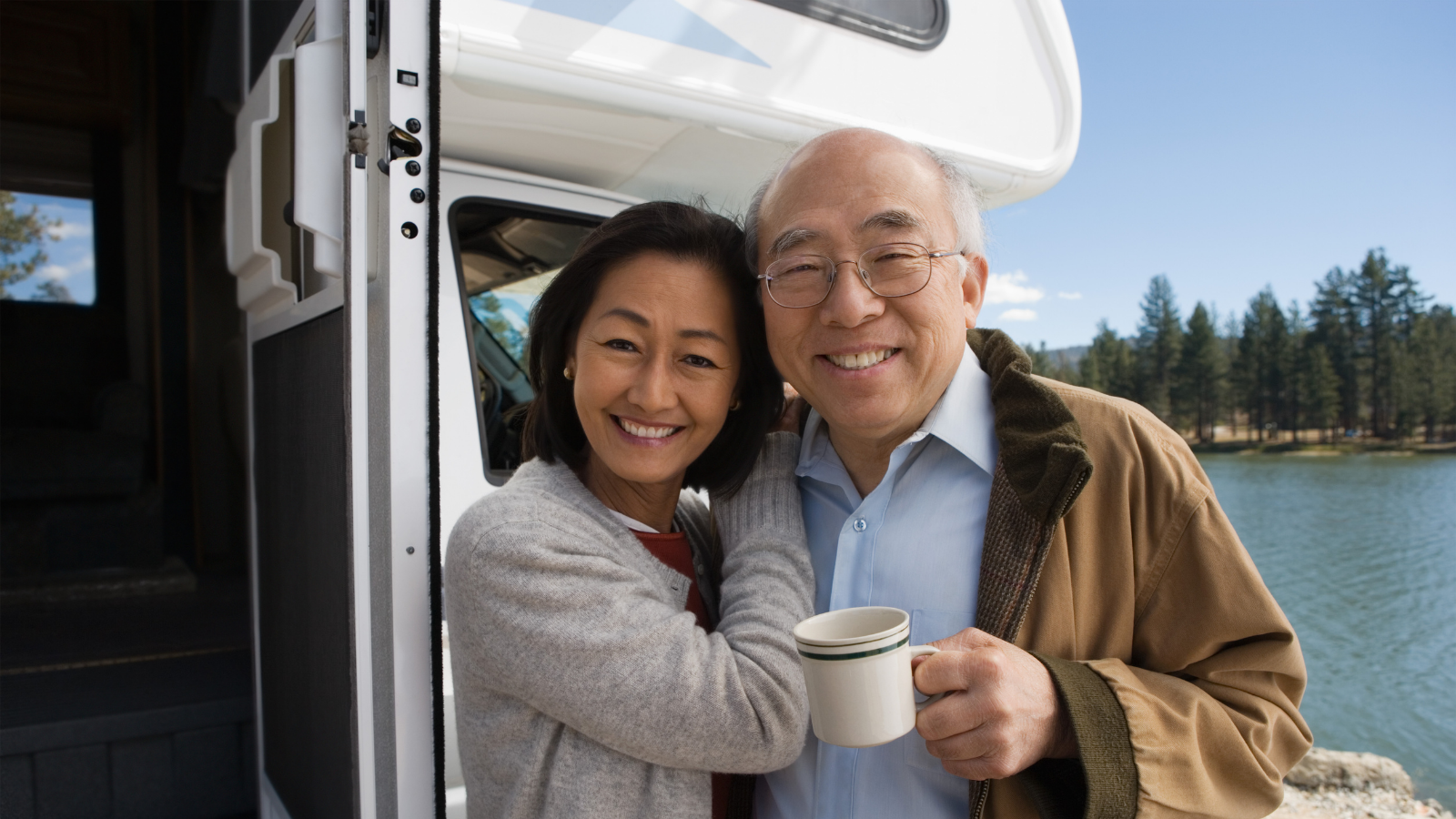There are a lot of upsides to investing in an RV and spending your retirement in a comfortable recreation vehicle.
However, you need to come to this decision gradually and with a comprehensive understanding of what RV ownership and life entails – especially if you’ve never done either up until that point. Here, we share some of the pros of retiring in an RV.
A chance for modest living, if you plan.
This may be a longstanding dream and now that you’re looking at clocking out of the office permanently, it’s time to set that dream into motion. But, is it the right thing to do? If you’ve planned for retirement carefully, RVing can be a very economical way to stretch those well-earned retirement dollars. Longtime RVers have noted that living on the road works well on a limited budget, as what often happens upon retirement. Monthly utility bills are much smaller than in traditional home ownership, and there are dozens of ways to stretch a dollar with an RV, from gas usage to nightly rates to food selection. Not to mention that the footprint of an RV is much smaller than a standard home, as is the interior and exterior maintenance. Talk with a financial planner at least several years prior to retirement about the type of RV you’re considering buying, whether you want to spring for new or used, and whether you’ll need a new tow vehicle or toad. Avoid from spending a heavy chunk immediately. In fact, it may be more prudent to purchase an RV before retirement so that you have time to get to know the RV and be able to better absorb some of the initial costs.
Give back and stay for free.
One of the largest line items in an RVer’s budget is nightly camping rates. Of course, you can get discounts if you have extended stays, or visit during off times of the week or year. Now that you’re retiring, how are you going to spend your time? In addition to traveling and having the freedom to visit the places you’ve had on your list to “get to” when there’s time, you can also use the opportunity to give back – and save some money in the process. Volunteering with various groups – NOMADS, for instance – who do work in their communities or service projects following natural disasters is a great way to stay active, make friends, help others, and save on camping fees. Most work sites offer free camping during the course of the project. Although this a “perk” of volunteering, it’s not the driving factor for most RV retirees; it’s the sense of purpose they feel in helping others.
See more of your family if you live far apart.
An RV gives retirees flexibility and freedom to visit their family and friends. It doesn’t matter where those people are, if there’s a road, there’s a way. Many retirees with RVs find they get to see their loved ones more often and for longer lengths of time, which is especially important for grandparents. You not only have your own space to reside when you make your visit, you have the ability to travel around more regularly without the worry of leaving your sticks and bricks home behind. Everything you need is already in the RV with you.
See the sights.
There’s no need to put off that bucket list any longer. Early retirement, when you’re still feeling physically and mentally capable, is the ideal time to go on excursions and experience places you’ve only dreamed about until that point. An RV allows you to maneuver the country at your own pace, to see what you planned to see – and what you didn’t plan to see. RVing is full of memorable surprises; you may find yourself in a new favorite spot simply by accident. And if you want to stay for a while, you can.

